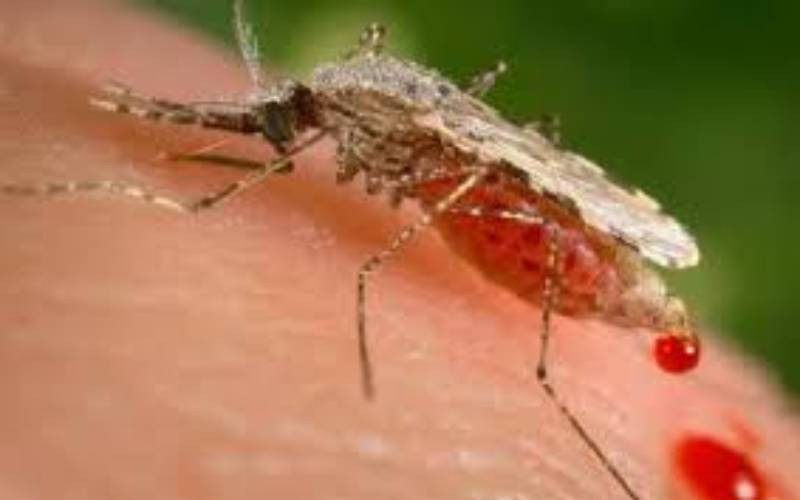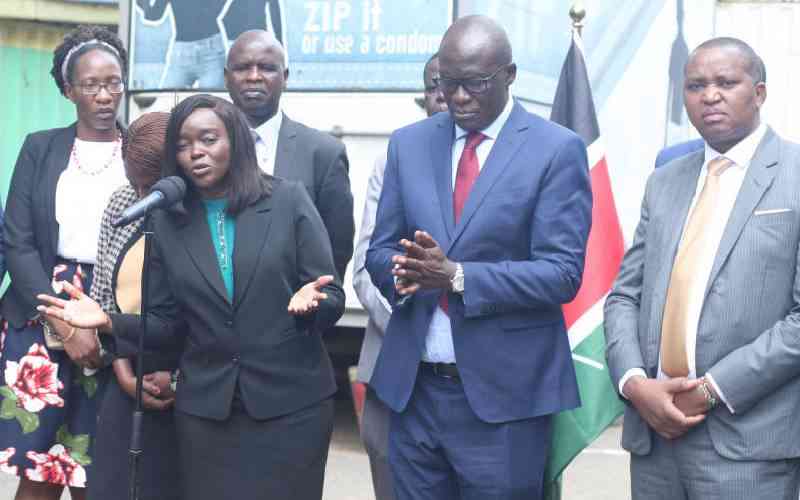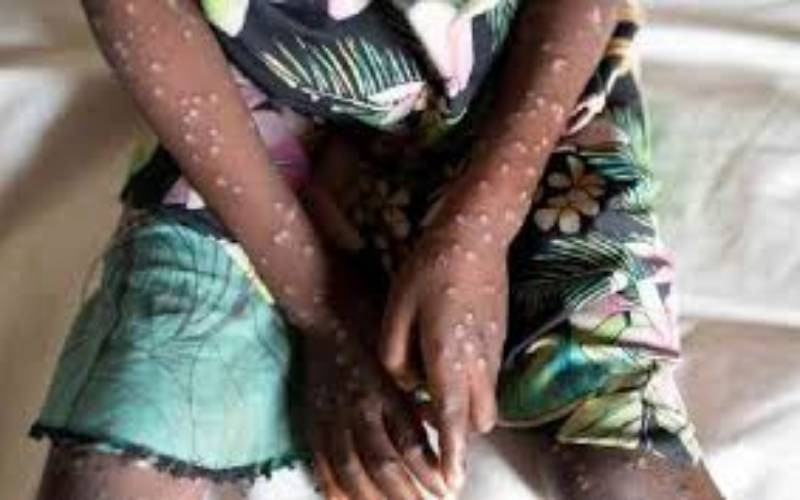
She had mixed emotions after developing a pimple on her left breast.
The shock and pain forced 45-year-old Mary Nyambura from Pipeline in Nakuru to seek medication. She was diagnosed with breast cancer at stage three.
It was her first breast cancer screening. She was placed on chemotherapy and after completion, she underwent a mastectomy.
"Cancer caught me unaware. I wish I had been gentle to myself by undergoing regular screening. Perhaps the cancerous cell could have been caught earlier," says Mary who was diagnosed in October 2020.
Now she undergoes regular medical check-ups at the Cancer Unit of Nakuru Level Five Hospital.
"The disease stirs a lot of fear and emotions, but hope keeps me going."
Mary is not the only patient caught with breast cancer at an advanced age, hundreds of women in Kenya are diagnosed with breast cancer at stages three and four.
Data by the Kenya National Cancer Registry 2014-19 (KNCR) show seven out of 10 cancers are diagnosed at advanced stages (stage three and stage four). Additional data by the National Cancer Institute of Kenya (NCIK) shows breast cancer is the leading type in Kenya with an estimated 6,799 cases annually, contributing to 12.5 per cent of the overall cancer burden.
- Journey to Surviving Cervical Cancer
- Survivor opens safe house for minors undergoing cancer treatment
- Why women aren't lining up for life-saving screening, vaccine
- Teachers at the forefront of getting girls vaccinated against deadly virus
Keep Reading
Breast cancer accounts for more than 3, 107 deaths, making it the second leading cause of all cancer deaths in the country. At least seven women die every day in Kenya as a result of breast cancer. However, Ruth Muia, head department at the Cancer Prevention and Care Spectrum at NCIK, said nearly 70 per cent of breast cancer cases in Kenya are diagnosed late when chances of curative treatment are low.
"Breast cancer is curable if detected early, but the majority of patients present at stage three and four when the cancer cells have spread, making it difficult to treat and cure," said Muia.
Data by the Kenya National Cancer Registry 2014-2019 (KNCR) shows only about 25 per cent of Kenyan women aged 15-49 have performed a self-breast examination, while 14 per cent have had a clinical breast examination (KDHS, 2014).

Cancer examination as per the report is likely to be lower in women in rural areas as well as those of low socioeconomic status.
On her part, Dr Juliet Maina, a clinical radiation oncologist at Nanyuki Teaching and Referral Hospital, said the country is struggling with breast cancer awareness, with women fearing 'the unknown' in screening.
Most women, she said, feel they would rather stay with it, only to be diagnosed at advanced stages, when they cannot be cured. Breast screening aims at early diagnosis and prompt treatment and therefore improves prognosis and outcome.
"I am surprised that patients prefer not knowing about their status. They suspect, but they are scared of undergoing screening and examination," said Dr Maina.
The clinical radiation oncologist explained that cancer screening can be done either through clinical, self-examination or mammograms, an international modality of screening individuals above 40 years.
The test is aimed at identifying healthy women who may have as yet undiagnosed or asymptomatic cancer, or who may have risk modifying or pre-cancerous changes in the breast which would mean an increased risk of breast cancer.
A mammogram uses low-energy x-ray to identify abnormal masses.
"It is a requirement that every woman above the age of 50 goes for a mammogram, annually, but very few people know about that, despite breast cancer being the most frequent malignancy in women, and is associated with high mortality," said Dr Maina.
In 2016, the government, through the Managed Equipment Service (MES) project, introduced digital mammography machines distributed across 47 counties to help in the diagnosis of the disease.
Installation of the machine was a major upgrade from the previous 11 analog mammogram machines in public hospitals.
An impact assessment conducted by the ministry in 2018 showed that the decentralisation of mammography increased geographical access to the services.

But even with the installation of digital mammograms, screening remains low.
In Baringo, only 11 women tested between February and September. The county Health executive, Richard Rotich, attributed the low uptake of screening to the lack of information by locals on the importance of cancer screening.
"It is worrying that locals are scared of cancer, and therefore don't take screening seriously. There is misinformation that we are debunking that cancer is a death sentence," said Rotich.
On her part, Maina said, "Most people do not understand the concept of a mammogram, even the learned and elite. People have been reluctant over the years to get screened, a trend that is worrying"
The expert attributed the low uptake of mammogram examinations to lack of specialists (a radiologist and oncologists), unlike cervix which can be done by clinical officer, doctors, or nurses.
 The Standard Group Plc is a multi-media organization with investments in media platforms spanning newspaper print
operations, television, radio broadcasting, digital and online services. The Standard Group is recognized as a
leading multi-media house in Kenya with a key influence in matters of national and international interest.
The Standard Group Plc is a multi-media organization with investments in media platforms spanning newspaper print
operations, television, radio broadcasting, digital and online services. The Standard Group is recognized as a
leading multi-media house in Kenya with a key influence in matters of national and international interest.











